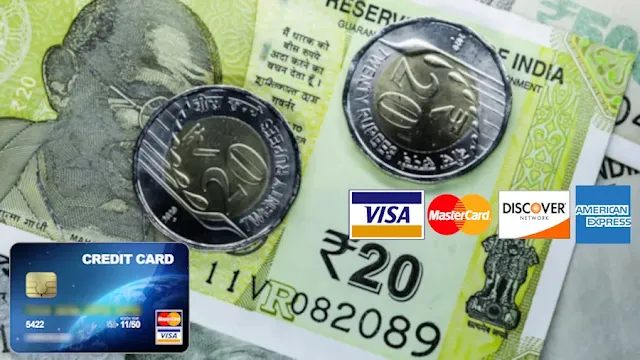Table of Contents
Navigating customs duty at Indian airports can feel daunting, but with the right knowledge, it’s a manageable process. When I arrived at Delhi’s Indira Gandhi International Airport in 2023 with a new laptop, I was surprised by the customs process but relieved to find clear payment options like UPI and credit cards. This guide simplifies how to pay customs duty at Indian airports, covering accepted payment methods, including UPI, cash, and cards, and offering practical tips to avoid delays. For official guidance, refer to the Delhi Airport Customs Guide or the Central Board of Indirect Taxes and Customs (CBIC).
Understanding the Customs Duty Process
Customs duty is a tax levied on goods imported into India that exceed the duty-free allowance or are restricted/prohibited items. Upon arrival, passengers must choose between the Green Channel (no dutiable goods) or Red Channel (dutiable goods) at international airports. You’ll need to complete a Customs Declaration Form provided by the airline before landing, accurately declaring items like electronics, jewelry, or foreign currency exceeding USD 5,000 in notes or USD 10,000 in total value, including traveler’s checks. Failure to declare dutiable items can lead to penalties or confiscation.
If your baggage is lost or mishandled, obtain a certificate from the airline, countersigned by Customs, to utilize any unused duty-free allowance. For re-export or delayed clearance, request Customs to detain your baggage, which will be inventoried and stored with a Detention Receipt issued. Learn more about baggage rules at Wikipedia’s Indian Customs Service page.
Accepted Payment Methods
All customs duty payments for baggage must be made at the State Bank of India counter in the Arrival Hall. Accepted methods include:
1. UPI (Unified Payments Interface)
Many Indian airports, like Delhi and Mumbai, now accept UPI payments for customs duty through apps like Google Pay, PhonePe, or Paytm. Ensure your UPI account is linked to an Indian bank account or use apps like UPI One World designed for foreign tourists. Verify with the customs counter for UPI availability Wise.
2. Cash
Pay in Indian Rupees (INR) for quick transactions. Carry sufficient cash, as smaller airports may prefer this method. Check exchange rates via Reserve Bank of India if converting currency.
3. Foreign Currency
Accepted currencies include USD, EUR, GBP, AUD, JPY, CAD, CHF, AED, SAR, and SGD. Airport exchange rates may be less favorable, so consider converting to INR beforehand Delhi Airport.
4. Credit/Debit Card
Visa, MasterCard, and American Express are widely accepted, though foreign transaction fees may apply. Confirm with your card issuer to avoid surprises Which Credit Card is Best for India Domestic Flight Booking?.
5. Check
Checks are less common and not always accepted. Contact the airport customs office, such as Delhi Airport Customs or Chennai Customs, to confirm availability.
What If You Don’t Have Funds at the Airport?
If you lack funds to pay customs duty upon arrival, several options are available:
1. Currency Exchange Counters
International airports like Delhi and Mumbai have exchange counters to convert foreign currency to INR. Check rates to avoid high fees.
2. ATMs
Withdraw INR using debit/credit cards at airport ATMs. Ensure your card supports international transactions RBI Currency FAQ.
3. Credit Card Payment
Use a credit card for convenience, especially if cash or UPI isn’t an option. Be aware of potential surcharges.
4. Seek Assistance
Customs officials can guide you to payment facilities or temporarily hold goods until payment is arranged. Discuss options at the customs counter.
Payment Timeline and Consequences
Customs duty must typically be paid immediately upon arrival to clear goods. If unable to pay, Customs may detain goods for a few days, allowing you to arrange payment. Non-payment can result in penalties, additional fees, or confiscation Reddit IndiaTax. Always request an official receipt for proof of payment, which is crucial for disputes or claiming detained goods.
Paying customs duty at Indian airports is straightforward with preparation. Understanding payment options—UPI, cash, foreign currency, cards, or checks—ensures a smooth process. Use airport facilities like ATMs or exchange counters if needed, and always secure a receipt. For more details, visit CBIC Passenger Facilities. Safe travels!
Frequently Asked Questions
How do I pay customs duty in India?
Pay at the State Bank of India counter in the airport’s Arrival Hall using UPI, cash, foreign currency, credit/debit cards, or checks (if accepted). Complete the Customs Declaration Form before arrival Delhi Airport Customs Guide.
How do I pay customs duty at the airport?
Declare dutiable goods via the Red Channel, have them assessed by Customs, and pay at the designated counter using UPI, cash, cards, or select foreign currencies.
What is the customs duty at Indian airports?
Customs duty is a tax on imported goods exceeding duty-free allowances (e.g., INR 50,000 for electronics). Rates vary by item, typically 38.5% including taxes GoDigit.
How much do Indian customs charge?
Charges depend on the item’s value and HSN code, often 20–38.5% of the assessable value (CIF + taxes). Use the ICEGATE calculator for estimates.
Where do I pay customs charges?
Payments are made at the State Bank of India counter in the Arrival Hall of international airports like Delhi, Mumbai, or Chennai.





No comments:
Post a Comment